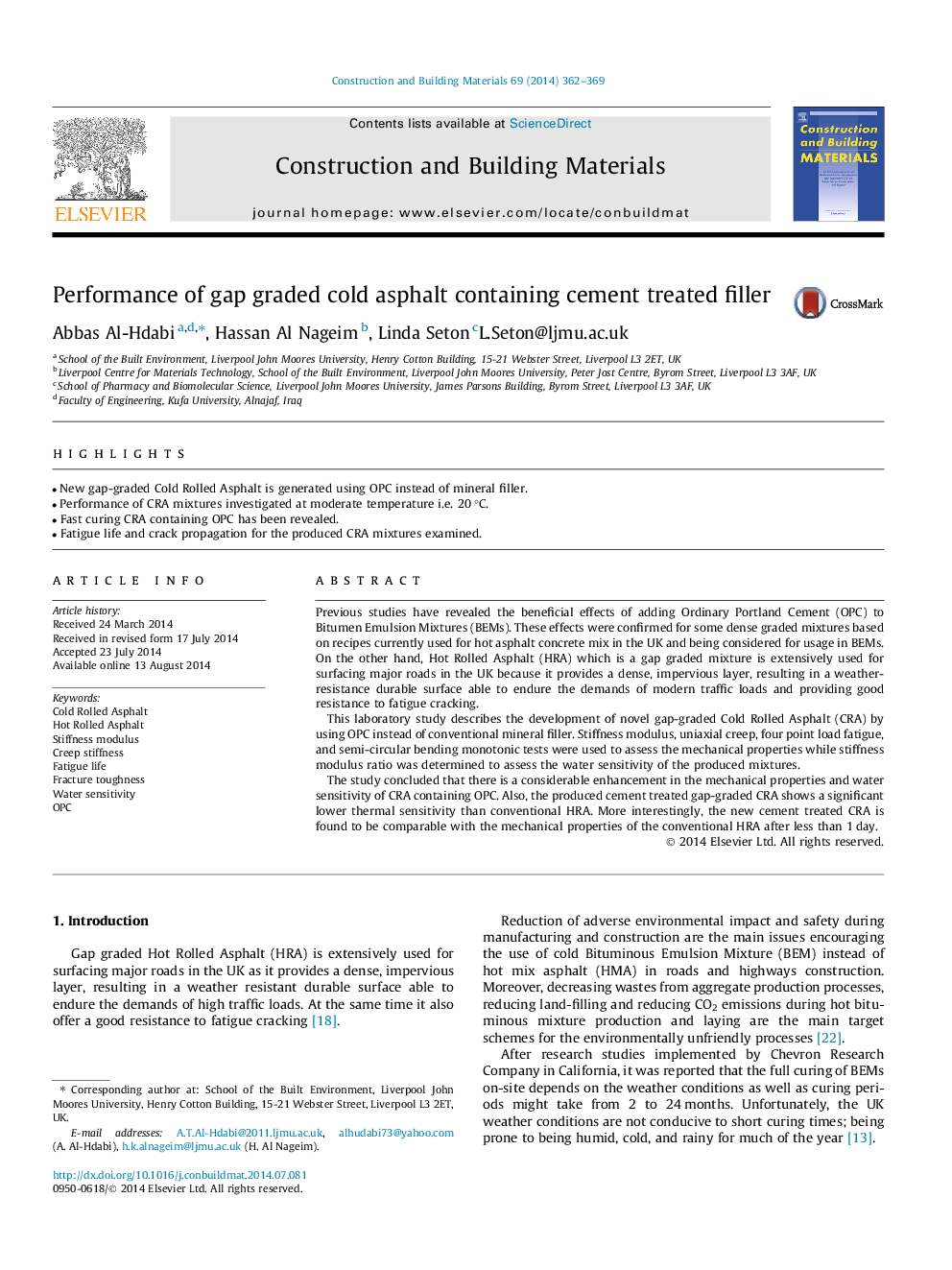| Article ID | Journal | Published Year | Pages | File Type |
|---|---|---|---|---|
| 257426 | Construction and Building Materials | 2014 | 8 Pages |
•New gap-graded Cold Rolled Asphalt is generated using OPC instead of mineral filler.•Performance of CRA mixtures investigated at moderate temperature i.e. 20 °C.•Fast curing CRA containing OPC has been revealed.•Fatigue life and crack propagation for the produced CRA mixtures examined.
Previous studies have revealed the beneficial effects of adding Ordinary Portland Cement (OPC) to Bitumen Emulsion Mixtures (BEMs). These effects were confirmed for some dense graded mixtures based on recipes currently used for hot asphalt concrete mix in the UK and being considered for usage in BEMs. On the other hand, Hot Rolled Asphalt (HRA) which is a gap graded mixture is extensively used for surfacing major roads in the UK because it provides a dense, impervious layer, resulting in a weather-resistance durable surface able to endure the demands of modern traffic loads and providing good resistance to fatigue cracking.This laboratory study describes the development of novel gap-graded Cold Rolled Asphalt (CRA) by using OPC instead of conventional mineral filler. Stiffness modulus, uniaxial creep, four point load fatigue, and semi-circular bending monotonic tests were used to assess the mechanical properties while stiffness modulus ratio was determined to assess the water sensitivity of the produced mixtures.The study concluded that there is a considerable enhancement in the mechanical properties and water sensitivity of CRA containing OPC. Also, the produced cement treated gap-graded CRA shows a significant lower thermal sensitivity than conventional HRA. More interestingly, the new cement treated CRA is found to be comparable with the mechanical properties of the conventional HRA after less than 1 day.
